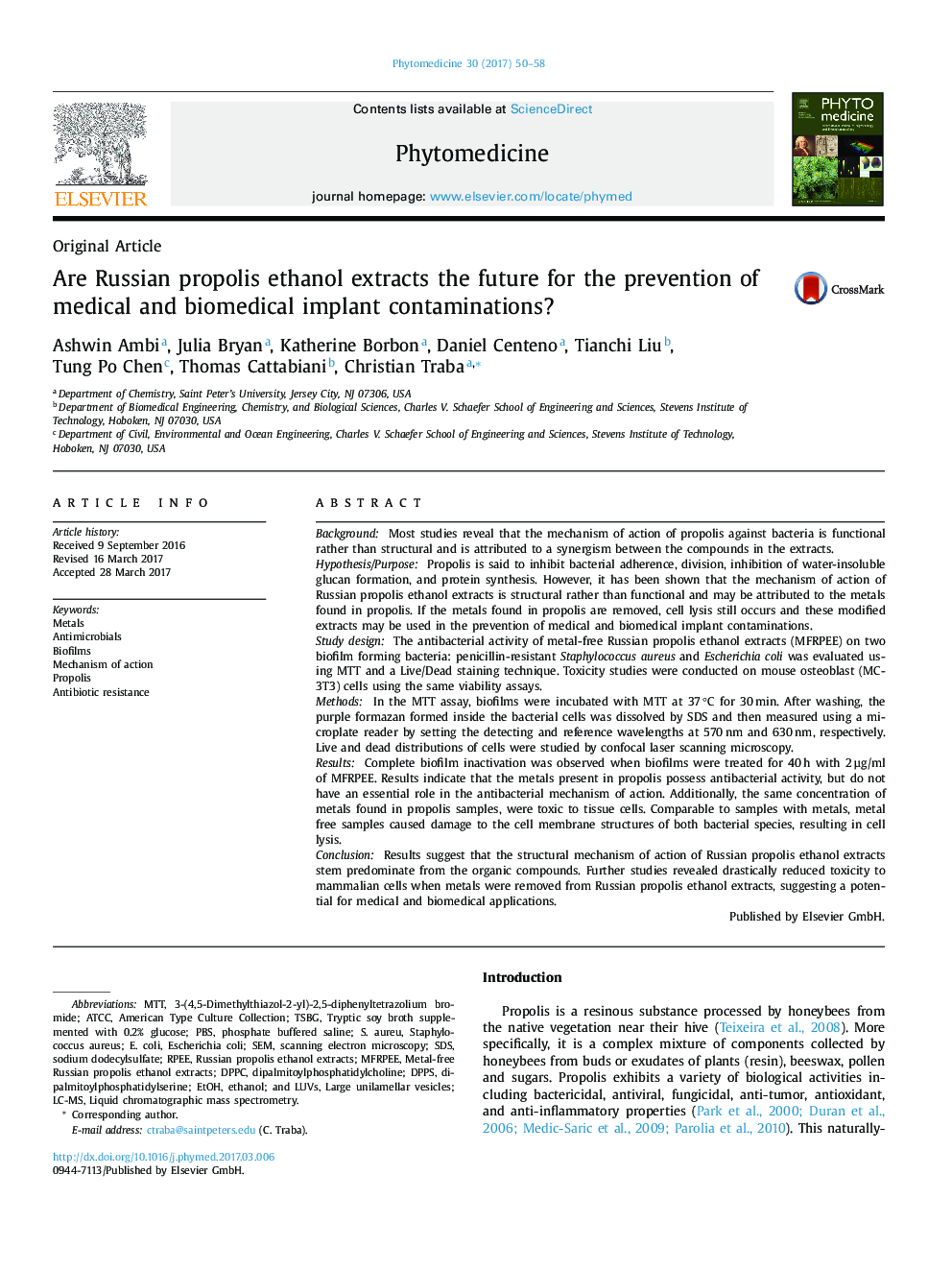| کد مقاله | کد نشریه | سال انتشار | مقاله انگلیسی | نسخه تمام متن |
|---|---|---|---|---|
| 5549328 | 1556689 | 2017 | 9 صفحه PDF | دانلود رایگان |
BackgroundMost studies reveal that the mechanism of action of propolis against bacteria is functional rather than structural and is attributed to a synergism between the compounds in the extracts.Hypothesis/PurposePropolis is said to inhibit bacterial adherence, division, inhibition of water-insoluble glucan formation, and protein synthesis. However, it has been shown that the mechanism of action of Russian propolis ethanol extracts is structural rather than functional and may be attributed to the metals found in propolis. If the metals found in propolis are removed, cell lysis still occurs and these modified extracts may be used in the prevention of medical and biomedical implant contaminations.Study designThe antibacterial activity of metal-free Russian propolis ethanol extracts (MFRPEE) on two biofilm forming bacteria: penicillin-resistant Staphylococcus aureus and Escherichia coli was evaluated using MTT and a Live/Dead staining technique. Toxicity studies were conducted on mouse osteoblast (MC-3T3) cells using the same viability assays.MethodsIn the MTT assay, biofilms were incubated with MTT at 37 °C for 30 min. After washing, the purple formazan formed inside the bacterial cells was dissolved by SDS and then measured using a microplate reader by setting the detecting and reference wavelengths at 570 nm and 630 nm, respectively. Live and dead distributions of cells were studied by confocal laser scanning microscopy.ResultsComplete biofilm inactivation was observed when biofilms were treated for 40 h with 2 µg/ml of MFRPEE. Results indicate that the metals present in propolis possess antibacterial activity, but do not have an essential role in the antibacterial mechanism of action. Additionally, the same concentration of metals found in propolis samples, were toxic to tissue cells. Comparable to samples with metals, metal free samples caused damage to the cell membrane structures of both bacterial species, resulting in cell lysis.ConclusionResults suggest that the structural mechanism of action of Russian propolis ethanol extracts stem predominate from the organic compounds. Further studies revealed drastically reduced toxicity to mammalian cells when metals were removed from Russian propolis ethanol extracts, suggesting a potential for medical and biomedical applications.
240
Journal: Phytomedicine - Volume 30, 1 July 2017, Pages 50-58
